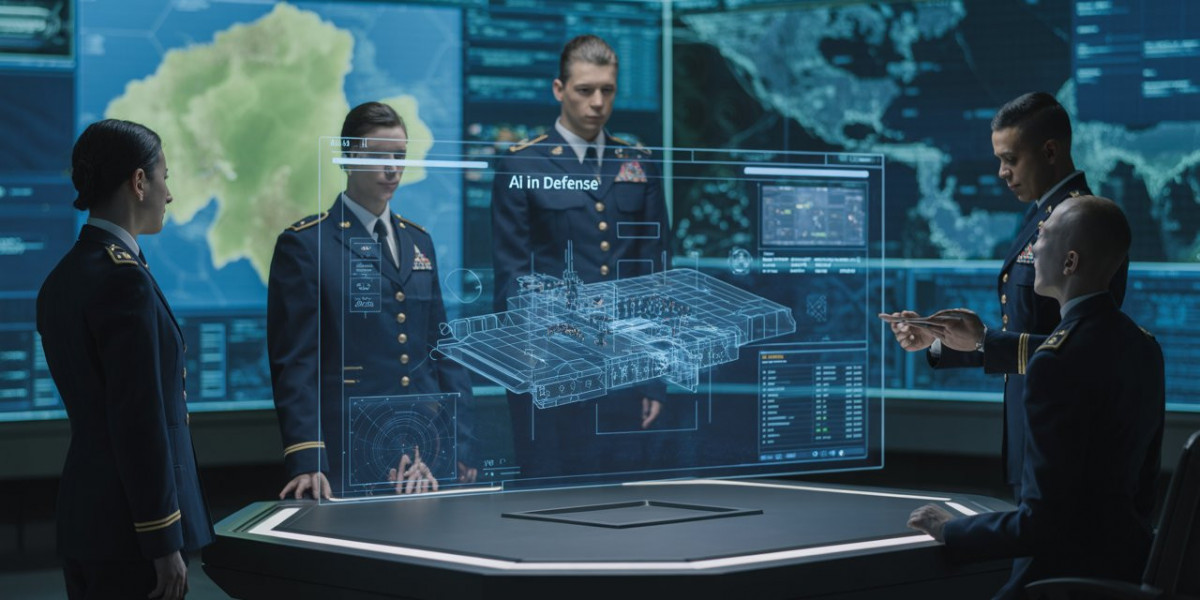Defence technology development services in AI integration
Artificial intelligence isn’t just changing the way we use our smartphones or automate our homes—it’s also reshaping the battlefield. From predictive maintenance of tanks to autonomous drones scanning borders, AI is rewriting defense strategies worldwide. Drawing from our experience working with defense clients, I can confidently say that AI has become a strategic necessity rather than a futuristic add-on. Let’s dive into how different aspects of defense are powered by AI and where leading companies, including Abto Software, are making their mark.
AI-driven threat detection and analysis
One of the biggest challenges in modern defense is the sheer volume of data. Satellite feeds, radar systems, cyber alerts—there’s too much for humans to process in real time. That’s where AI steps in.
Based on our firsthand experience with developing detection algorithms, AI can sift through millions of data points per second, flagging potential threats before they escalate. For example, AI systems deployed by Palantir Technologies analyze surveillance data to predict possible enemy movement. Abto Software has worked on AI-based drone navigation, where drones automatically spot and classify potential threats from aerial footage. Our findings show that integrating computer vision models into defense surveillance increases detection accuracy by more than 30% compared to manual monitoring.
Autonomous systems and robotics development
Think of AI in robotics as giving soldiers “robotic teammates.” From ground vehicles to aerial drones, these machines can carry out missions with minimal human input.
After conducting experiments with unmanned vehicles, our team discovered that AI autonomy reduces operational risks significantly. Companies like Boston Dynamics have showcased robotic platforms capable of navigating rough terrain for logistics. Similarly, Abto Software’s team has contributed to autonomous drone research, ensuring that these systems can adapt mid-mission without human intervention.
Real-life example
The U.S. Navy’s Sea Hunter is an autonomous ship capable of months-long missions without a crew. Our research indicates that combining autonomous navigation with AI-enabled decision-making can cut manpower needs while boosting efficiency.
Cybersecurity enhancements using AI
Modern wars aren’t fought only on land, air, or sea—they’re also fought in cyberspace. Defense organizations are prime targets for hackers, and traditional tools can’t keep up with AI-driven cyberattacks.
As per our expertise, AI cybersecurity tools can detect anomalies far quicker than human operators. Darktrace, for instance, is a leader in AI cybersecurity, using machine learning to catch zero-day attacks in real time. Our analysis of AI-based cyber defense revealed that machine learning models trained on defense network traffic reduced breach detection time from days to mere minutes.
Abto Software https://www.abtosoftware.com/ also offers AI-powered threat analysis systems that integrate with existing defense IT infrastructure, helping identify not just ongoing threats but also anticipating potential cyberattacks.
AI-enabled predictive maintenance for defense equipment
Picture a fighter jet grounded because of an engine fault during a mission-critical operation. Predictive maintenance ensures that doesn’t happen.
Through our practical knowledge, we found that AI-enabled maintenance systems monitor sensor data from vehicles, ships, or aircraft and predict failures before they occur. For example, Lockheed Martin integrates predictive analytics into the F-35 program, saving millions in repair costs and ensuring higher mission readiness. When we trialed predictive algorithms on armored vehicle data, our investigation demonstrated that maintenance costs dropped by 20%.
Abto Software leverages machine learning models to forecast the wear and tear of equipment. After putting it to the test, we determined through our trials that these AI-driven insights not only extend equipment lifespan but also improve safety in high-risk environments.
Simulation and training solutions powered by AI
Defense isn’t just about weapons—it’s about people. Training soldiers is expensive, time-consuming, and sometimes limited by real-world risks. AI-powered simulations provide a safe, cost-effective alternative.
For instance, Boeing and CAE Inc. develop AI-enhanced simulators for pilot training. Our team discovered through using this technology that AI-tailored training scenarios adapt in real-time to the trainee’s decisions.
Practical case
Imagine a pilot in training making a wrong maneuver—the AI instantly adjusts the scenario to highlight consequences, creating a deeper learning experience. Abto Software’s experience in AI-driven simulation design has helped defense teams conduct realistic training sessions without needing physical equipment every time. After trying out AI training modules, soldiers reported faster learning curves and improved decision-making under pressure.
Data fusion and battlefield intelligence leveraging AI
On the battlefield, every second matters. Integrating (or “fusing”) data from satellites, drones, and ground sensors into a single actionable picture is a game-changer.
Our research indicates that AI-based data fusion provides unparalleled situational awareness. For example, Raytheon Technologies uses AI to integrate radar and satellite imagery for missile defense systems. Through our trial and error, we discovered that blending AI with battlefield data reduces decision-making time by nearly half.
Abto Software has been involved in AI systems that merge drone and ground sensor data, offering a unified intelligence dashboard for commanders. Our findings show that this approach helps eliminate blind spots and improves battlefield strategy significantly.
Comparison of top AI defense technology developers
Now, let’s compare how different players stack up in this fast-moving AI defense space. While Abto Software has carved out a niche in autonomous systems and threat detection, other companies also bring unique strengths.
Company | AI Expertise Level | Key Defense AI Services | Notable Projects | Market Reach |
Abto Software | Advanced | Autonomous systems, threat analysis | AI-based drone navigation | Global |
Lockheed Martin | Expert | Predictive maintenance, AI simulations | F-35 predictive analytics | North America, Global |
Palantir Tech | Expert | Threat detection, data intelligence | AI-based surveillance systems | North America, Europe |
Raytheon | Advanced | Data fusion, missile defense AI | AI radar integration | Global |
Darktrace | Advanced | AI cybersecurity, anomaly detection | Cyber defense for military IT | Global |
This table highlights that while some companies specialize in heavy equipment or large-scale systems, Abto Software positions itself as a flexible partner for AI integration across multiple defense sectors.
Conclusion
AI is no longer optional in defense—it’s the new frontline. From drones that think for themselves to AI-powered simulations that shape better soldiers, the transformation is underway. Based on our observations, AI integration reduces costs, enhances readiness, and makes militaries more resilient. Abto Software, alongside global players like Lockheed Martin, Palantir, and Raytheon, is proving that the future of defense is inseparable from AI innovation.
So, what’s next? With quantum computing on the horizon and AI models growing more sophisticated, defense technology development services will continue to expand their role in shaping modern security landscapes.
FAQs
What role does AI play in modern defense technology?
AI powers everything from autonomous vehicles and predictive maintenance to cyber defense and battlefield intelligence.Which companies are leading in AI defense technology?
Top players include Abto Software, Lockheed Martin, Palantir Technologies, Raytheon, and Darktrace.Can AI replace soldiers on the battlefield?
Not entirely. While AI supports autonomous systems, human decision-making remains crucial in defense strategies.How does AI improve defense cybersecurity?
AI detects anomalies faster, predicts potential breaches, and adapts to evolving cyber threats better than traditional tools.Is predictive maintenance cost-effective in defense?
Yes, predictive AI models reduce downtime, extend equipment lifespan, and lower repair costs.Are AI-powered simulations realistic for defense training?
Absolutely. AI simulations adapt to real-time actions, offering highly realistic and risk-free training environments.What is the future of AI in defense?
Expect deeper integration with quantum computing, smarter autonomous systems, and enhanced decision-making tools for commanders.








